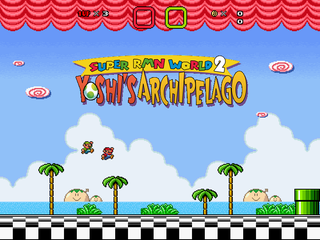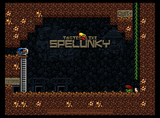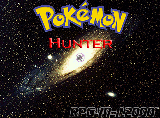HALIBABICA'S PROFILE
I'm a multifaceted content creator with too many things to do. I have a Let's Play channel for indie games on YouTube, webcomics and reviews on ComicFury, and artwork on deviantArt.

Search
Filter
 I haven't touched RPG Maker in about seven years. It's time.
I haven't touched RPG Maker in about seven years. It's time.
 Nothing like typing a 3000+ letter game description and having it blink out of existence even though you hit Update! XC
Nothing like typing a 3000+ letter game description and having it blink out of existence even though you hit Update! XC
 Where's the line between over-hard and challenging? I can't seem to find it.
Where's the line between over-hard and challenging? I can't seem to find it.
Well, eventually it becomes a matter of what Red Nova described earlier. The level of challenge the player faces depends on their understanding of the game's mechanics, and mastery of those mechanics will see even the hardest mode to its grave.
But not all players want to sink the effort to learn how to play a game well, and difficulty settings exist for those people. In the sense of RPGs, you could think of easy mode as 'mash attack button and win', Normal mode as encouraging better battle practices while also allowing less efficient alternatives, and Hard mode employing the most devious enemy strategies (provided they have accessible counters). If the only thing that changes is enemy HP and stats, they're doing it wrong. I think a lot of games do it wrong.
But not all players want to sink the effort to learn how to play a game well, and difficulty settings exist for those people. In the sense of RPGs, you could think of easy mode as 'mash attack button and win', Normal mode as encouraging better battle practices while also allowing less efficient alternatives, and Hard mode employing the most devious enemy strategies (provided they have accessible counters). If the only thing that changes is enemy HP and stats, they're doing it wrong. I think a lot of games do it wrong.
 Where's the line between over-hard and challenging? I can't seem to find it.
Where's the line between over-hard and challenging? I can't seem to find it.
from LockeZThat's a fair assessment of difficulty handling. Only thing I'd mention is the need for "Normal" difficulty, as in Easy is babby hand-hold mode and Hard is for people who actually want a challenge, while Normal is the game's intended difficulty. Ain't nobody got time fo' dat tho.
I think the amount of difficulty that's "just hard enough" is different for every player. Some players are just more skilled than others. You have four options, really, that I see:
1) Design the game for players of a certain skill level. Players too far below that skill level will be frustrated and players too far above it will be bored. You can expect players to get better at the game as they play, so this skill level can slowly increase as the game goes on. This is what 99% of older games did.
2) Add multiple difficulty settings for the player to choose between. This opens the game up to a much wider variety of players, but it vastly increases the time you will spend balancing it. There's a very small subset of players who hate games with multiple difficulty settings because their brains are wired to always take the easiest path, but that path is too easy to be fun to them. But as long as you don't let them change it mid-game, this phenomenon usually doesn't happen to more than about 5% of players.
3) Have some sort of automatic difficulty selection, level scaling, or rubberbanding. This normalizes the difficulty for everyone at the expense of completely defeating the purpose of getting better at the game. This only works if players don't know you're doing it. Once they find out, a lot of them will be furious, many will stop playing, and the ones that keep playing will change the way they play to abuse your scaling system instead of trying to play their best (since trying to play their best is actually counterproductive).
4) Make the game easy, but distract the player from the simplicity by making the game keep changing, with tons of minigames, and new characters with wildly different playstyles, and other things like that. Make it so that almost the entire game is spent learning how to play new parts, which are played differently than anything before, and thus the player will never get bored. Although some players will exhibit mastery of gameplay after 5 battles and others will take 100 battles, no one will exhibit mastery on their very first attempt at something, and so it always feels "challenging" to some degree. This method is very rare because it HUGELY increases development time; you have to create a dozen times as much gameplay as you would with the other methods. Super Mario RPG is a good example of this.
 Where's the line between over-hard and challenging? I can't seem to find it.
Where's the line between over-hard and challenging? I can't seem to find it.
 Where's the line between over-hard and challenging? I can't seem to find it.
Where's the line between over-hard and challenging? I can't seem to find it.
from Takeshi's Challenge wiki
Throwing 30,720 punches on the opening game screen will also take the player directly to the game's ending.
I have to acknowledge this factoid. It cannot be ignored.
So it boils down to what the player can do about the challenge, and whether the game effectively conveys what can be done. That makes a lot of sense. Now I just wish it were easier to tell if the game is at fault or the player is just a dingus.
 Where's the line between over-hard and challenging? I can't seem to find it.
Where's the line between over-hard and challenging? I can't seem to find it.
It's a shame the style of Dark Souls doesn't appeal to me, because it seems like one of those rare games that walks the line of "challenging but fair" perfectly. What does it do that other games don't such that players are willing to learn and get better instead of ragequit? Most of the time the impression I get is that people haaaaaaaaaaaaaaaaaaaate being challenged and would sooner blame the game than their own ineptitude. WHERE IS THE LINE I CAN'T FIND IT
IS DARK SOULS THE LINE
IS DARK SOULS THE LINE
 Where's the line between over-hard and challenging? I can't seem to find it.
Where's the line between over-hard and challenging? I can't seem to find it.
 Where's the line between over-hard and challenging? I can't seem to find it.
Where's the line between over-hard and challenging? I can't seem to find it.
Pages:
1

















